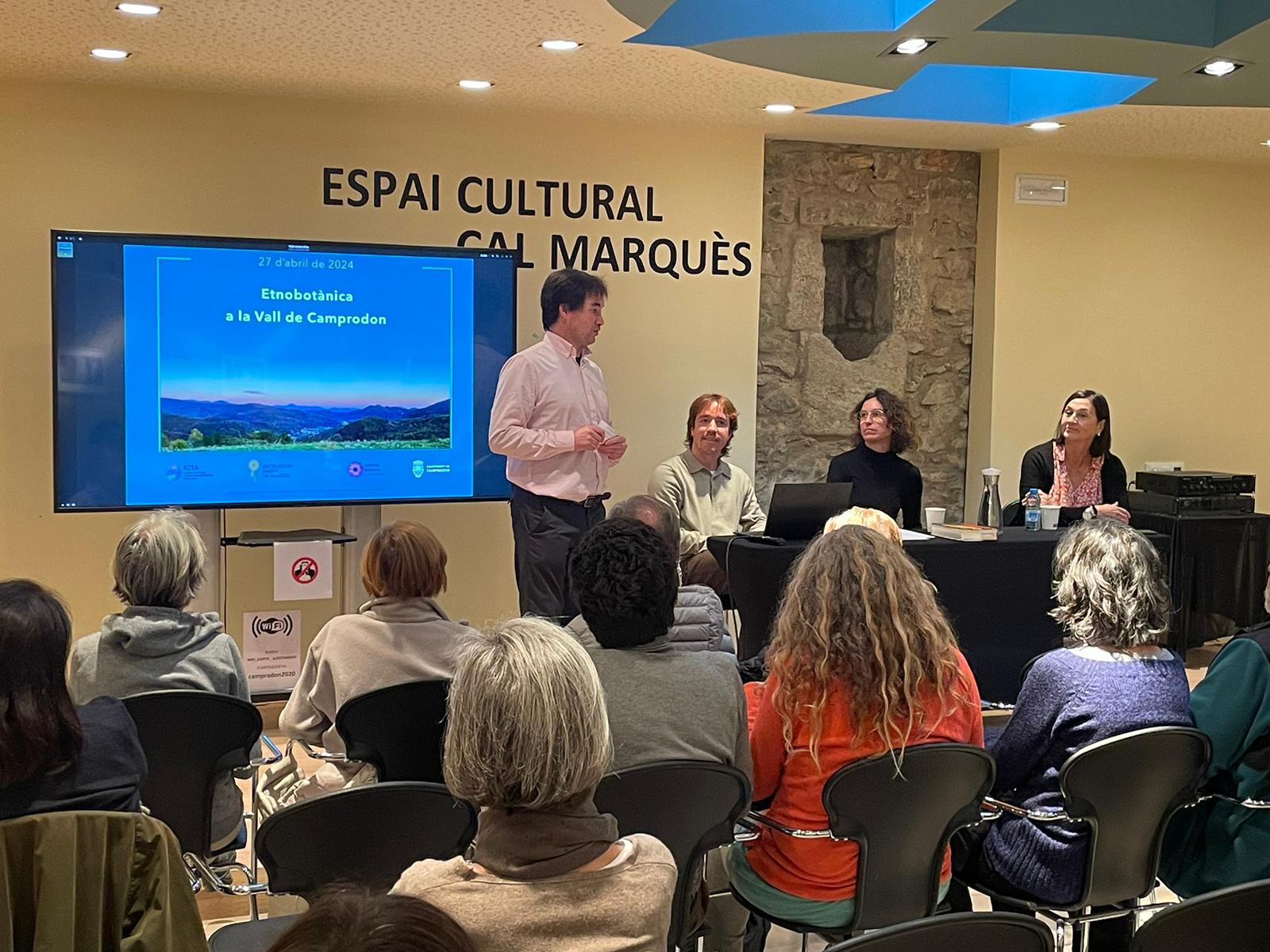A study highlights the importance of the relationship between people and plants
Sandrine Gallois and Álvaro Fernández Llamazares, researchers from ICTA-UAB, presented in Camprodon (Girona) the results of a participatory research carried out in the area on the importance of the relationship between people and plants in their surroundings. The event "Ethnobotany in the Valley of Camprodon" was attended by more than 40 people, many of whom had participated in the scientific study.

As part of the study, a documentary was made with the testimonies of some of the interviewees.
The inaugural conference reflected on the importance of botany and ethnobotany in the preservation of traditional knowledge, and the documentary "Listening to what the plants of the Catalan Pyrenees tell us" was shown, which was recorded during the interview process with the inhabitants of the Camprodon Valley. The mayor of Camprodon, Xavier Guitart, and the scientific director of ICTA-UAB, Esteve Corbera, were also present.
The project "Ethnobotany in the Valley of Camprodon", carried out in collaboration with the Botanical Institute of Barcelona, explores the complex intangible relationships between people and plants through the study of the expressive popular culture of the Alt Ter Valley. The project was developed by researchers from ICTA-UAB in collaboration with Joaquim Querol and Teresa Garnatje from the Botanical Institute of Barcelona.
The aim of the research was to gather traditional knowledge about the plants present in the valley and to explore their symbolism and meaning through expressive culture, such as stories, songs, folk sayings, memories and individual experiences. The study highlights the links between people and plants not only from a knowledge perspective, but also from an emotional, psychological and identity perspective. By exploring these links from these different dimensions, local knowledge is revitalised in harmony with conservation.
During the project, interviews were conducted with 22 people known to be ethnobotanical authorities in the Alt Ter-Camprodon Valley (Catalonia, Spain), mostly older people, who shared a wide range of cultural, family and individual expressions related to their relationship with the plant kingdom. The collection includes 36 different proverbs, 53 anecdotes, 27 traditions and 31 family customs. As part of the study, a documentary was made with the testimonies of some of the interviewees.
Through their testimonies, the participants reveal the complex relationships between people and plants, ranging from cultural heritage to emotional connections, ecological awareness and practical knowledge. The findings of this research have significant implications, both for the development of more comprehensive methods of measuring botanical knowledge, and for highlighting the breadth and depth of the many intangible relationships that people have with the plants around them. By challenging the botanical knowledge gap and considering these different dimensions of human-plant relationships, this approach could foster greater respect for our shared botanical heritage.
The study is part of Joaquim Querol Mercadé's master's thesis, supervised by ICTA-UAB researchers Álvaro Fernández-Llamazares and Sandrine Gallois, and Teresa Garnatje of the Botanical Institute of Barcelona. UAB anthropology students Alba Garet and Ariadna Masnou i Casadevall helped to carry out the interviews.
Enjoy the documentary: here